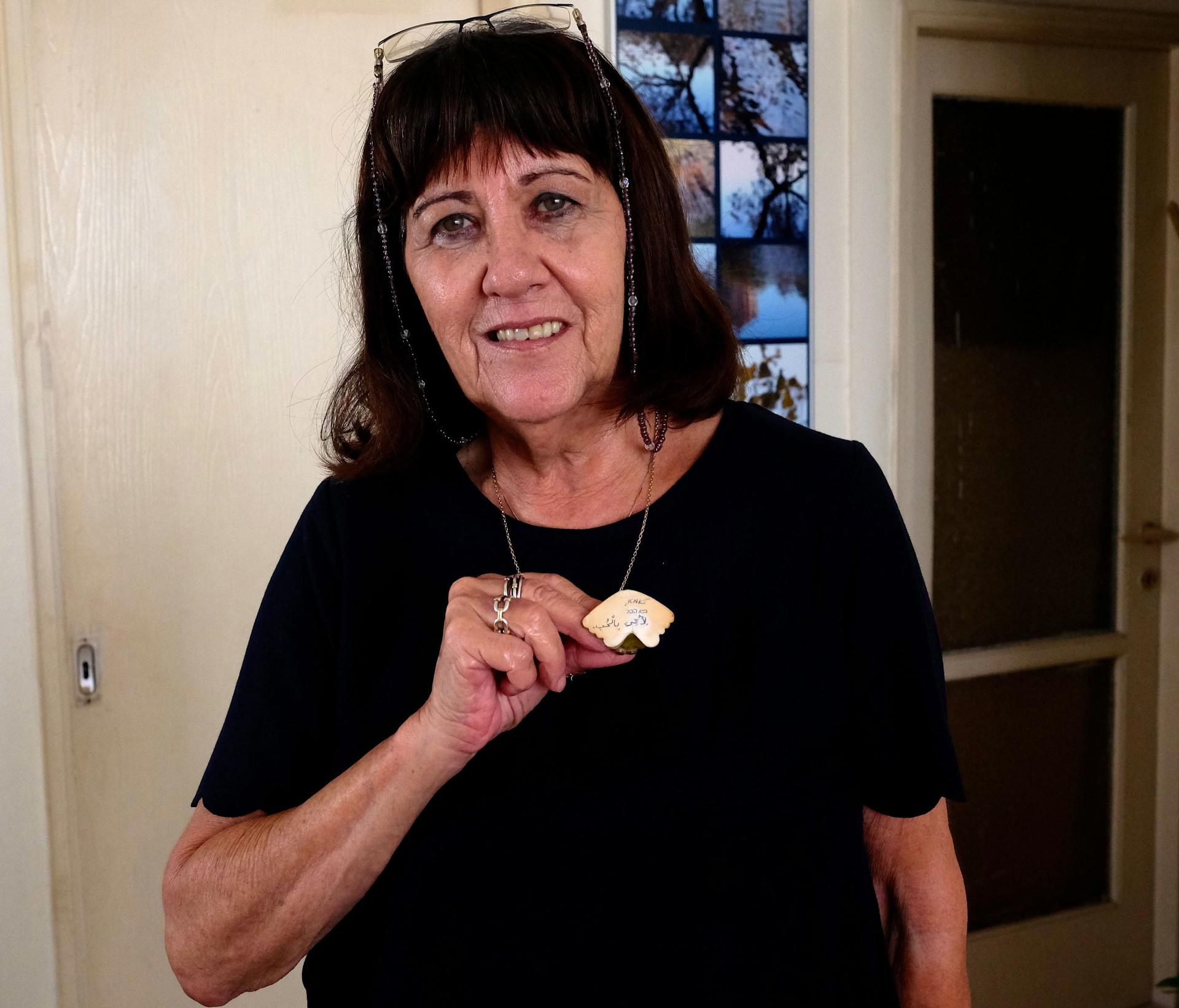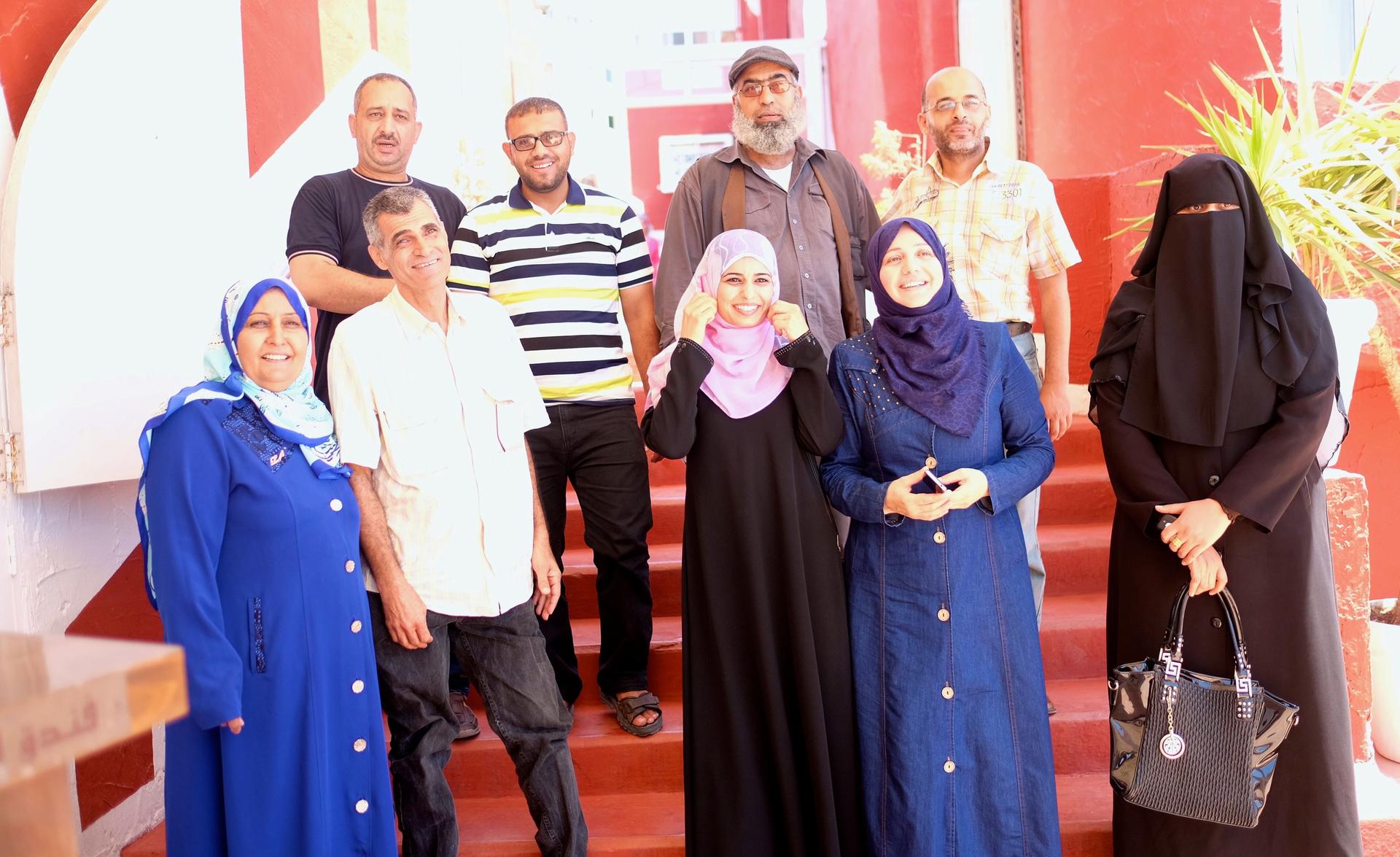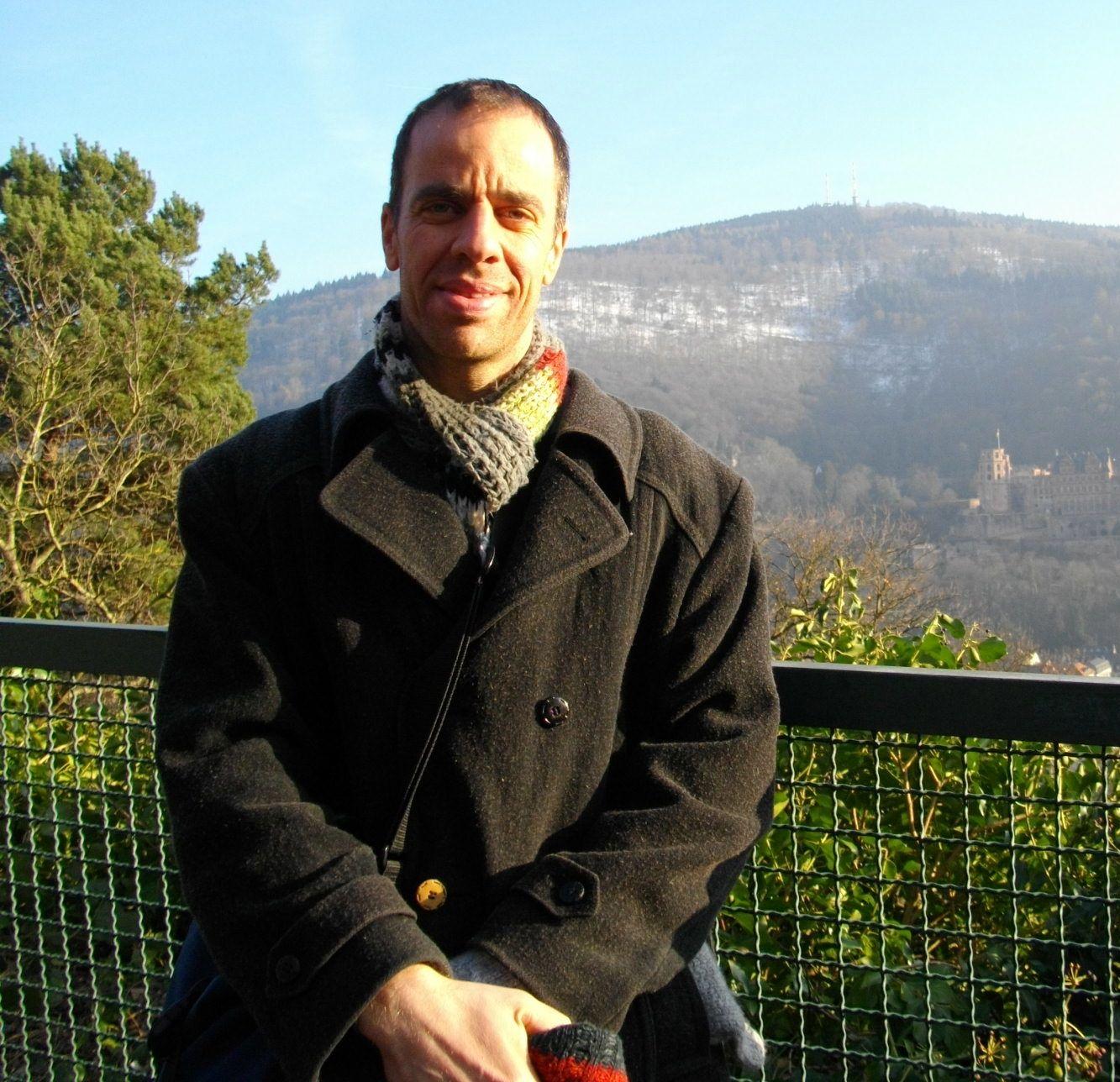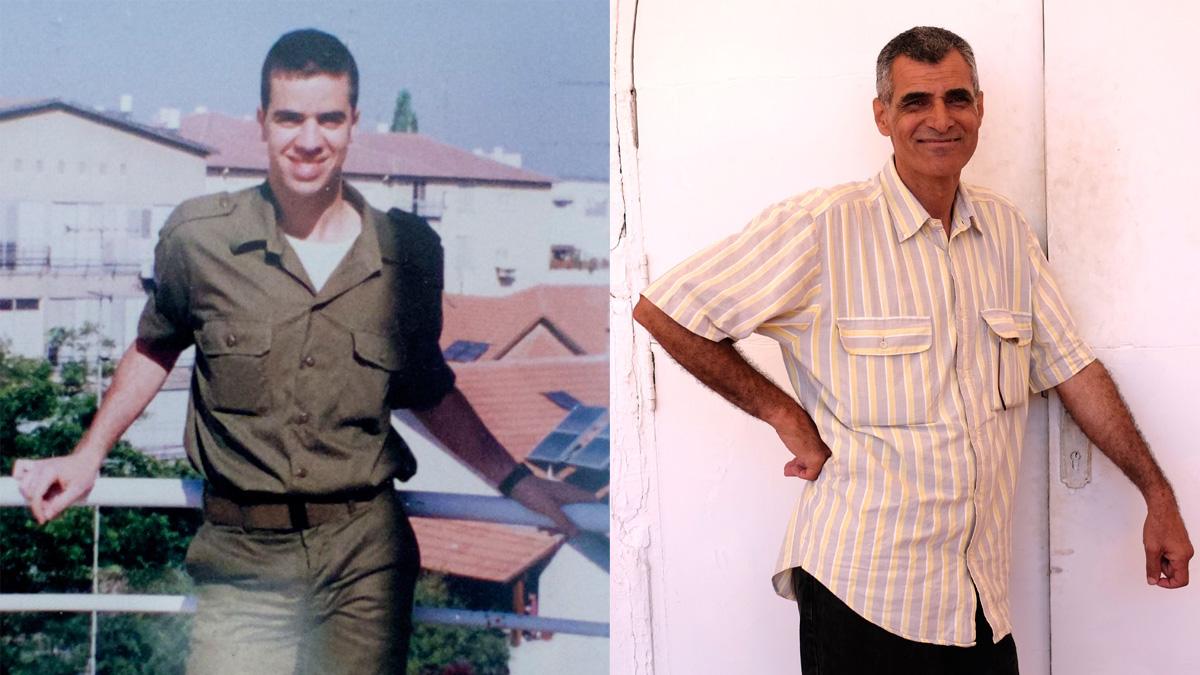A tale of two linguists and the conflict that separates them
Linguists Arik Sadan (in his Israeli Army days) and Sobhi Bahloul. Sadan is an authority on the Arabic language. Bahloul authored the Hebrew curriculum for Gaza's Palestinians.
In this World in Words podcast, we hear the stories of two of the Middle East's most prominent linguists.
The windows of Arik Sadan’s classroom at Hebrew University in Jerusalem look over the Silwan Valley, a sloping desert dotted with tall, white, rectangular Palestinian houses. Inside his classroom, most students are Jewish. Sadan teaches them Arabic.

Beyond Israel’s southwest border, Sobhi Bahloul also wrote a book: Kitaba Wa'Ti-ibrya. It was published in seven parts (Beginner, Intermediate and Advanced Hebrew; Hebrew Writing I and II; and Hebrew Editing I and II) and adds up to Gaza’s Hebrew language curriculum. Bahloul trained all of the twelve Hebrew teachers in the Gaza Strip.
Sobhi Bahloul is Palestinian, 53 years old and has been speaking Hebrew for over half of his life. After graduating from Tel Aviv University with a MA in Hebrew Language in 2002, he became Hamas’s go-to guy for all things related to Hebrew. He teaches at universities, consults with businessmen and translates documents for Gazans in Israeli hospitals and prisons.
“Hebrew is the language of an enemy,” Bahloul says. But he also believes Hebrew can bring Gazans closer to Israeli culture by helping them understand customs and daily life.

PODCAST CONTENTS
00:00 Learning the language of your enemy
01:53 Music: "Habib Galbi" by A-WA. More about these three singing sisters here.
02:33 Israeli linguist Arik Sadan, an authority on the Arabic subjunctive.

07:30 The way Arabic is taught in the Israeli army: "Know thy enemy, in order for you to stop the next explosion. You tend to forget that it's a language."
9:10 Sadan's sad joke: "I only wish that the Hebrew people and the Arab people would be a bit as close as the languages are."
11:20 But is he in the Mossad?
12:45 Searching for Arik Sadan's Palestinian counterpart.
13:20 Sobhi Bahloul has trained all twleve of Gaza's Hebrew teachers and developed Gaza's Hebrew curriculum.
14:42 "If you understand each other, it's good."
16:35 Bahloul's students don't learn about Passover, but he wants them to learn other cultural references.
17:45 Learning Hebrew to survive in an Israeli prison.
19:40 Bahloul breaks the ice with Israeli soldiers.
21:14 Have Arik Sadan and Sobhi Bahloul ever met?
23:30 Gaza's Hebrew students' Facebook friends in Israel.
24:08 Learning Hebrew in order to understand the labels on cosmetic products.
27:10 Music: Eich Efshar by Jane Bordeaux
28:05 A reminder that if you liked this episode of The World in Words, we'd really appreciate hearing from you. Also, please consider writing a review on iTunes, Stitcher— or wherever you listen. Thanks!
You can follow The World in Words stories on Facebook or subscribe to the podcast on iTunes.
